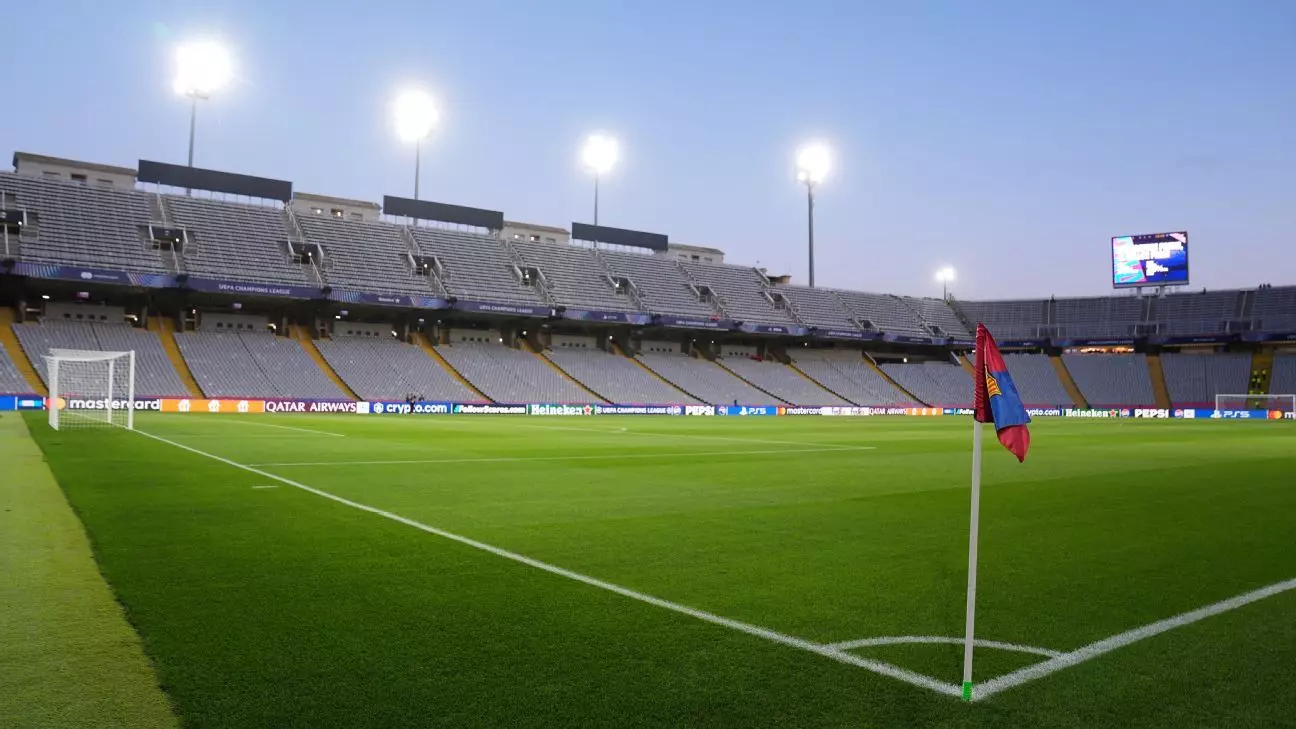In a significant turn of events, FC Barcelona has announced the indefinite closure of a supporters’ section known as the Espai d’Animació (EDA) at the Olympic Stadium. This drastic decision comes in light of ongoing disputes between the club and various supporters’ groups regarding unpaid fines due to behavioral violations during matches. The club claims that an agreement established with these groups has not been honored, leaving a debt totaling approximately €21,000 (about $22,092). The actions taken by the club appear to be a culmination of frustrations stemming from a lack of compliance with previously issued warnings and deadlines.
According to a statement from Barcelona, the club entered into a formal agreement with the supporters’ factions, which stipulates that these groups are responsible for any fines that arise due to their actions in the stadium. This arrangement is particularly important as it affects the atmosphere in the stands, which is integral to the matchday experience. The club noted that last season alone witnessed 14 disciplinary proceedings against the EDA for violating established regulations. The nature of these infractions indicates a broader challenge in managing fan behavior, particularly in a high-pressure environment like football, where emotions often run high.
Barcelona has stated it is open to discussions about the future of the EDA, but only after the outstanding fines have been settled. This raises questions about the relationship between clubs and supporters in modern football, where financial obligations and fan engagement are constantly at odds.
As Barcelona prepares to host Brest in the Champions League at the Olympic Stadium, the closure of this section poses significant implications for the atmosphere during the game. The EDA, which consists of around 600 dedicated supporters, is known for its vibrant and passionate contributions to matchday ambiance. Their absence may lead to a subdued atmosphere, challenging the players and the club to foster enthusiasm from a less engaged crowd.
The upcoming match against Las Palmas in LaLiga shortly after further emphasizes the situation. Barcelona’s temporary relocation to the Olympic Stadium, during renovations at Camp Nou, was intended to maintain both competitive integrity and supporter engagement. However, this situation highlights how swiftly circumstances can shift, affecting the club’s fan experience goals.
The club’s decision to close the supporters’ section is undeniably a complex affair that intertwines accountability, fan culture, and the challenges of upholding standards in a sport that thrives on passion and loyalty. Moving forward, it will be crucial for Barcelona to find a balance that allows them to maintain a vibrant support while enforcing necessary rules.
As the club navigates this minefield, the ongoing dialogue with supporters’ groups will be paramount. Reestablishing trust and partnership with the fans is essential not only for resolving the current fines but for fostering an environment where accountability and spirited support coexist harmoniously. Only time will reveal if the club’s actions will yield a more responsible supporter culture without stifling the very essence of football: the passionate, fervent support from its fans.

